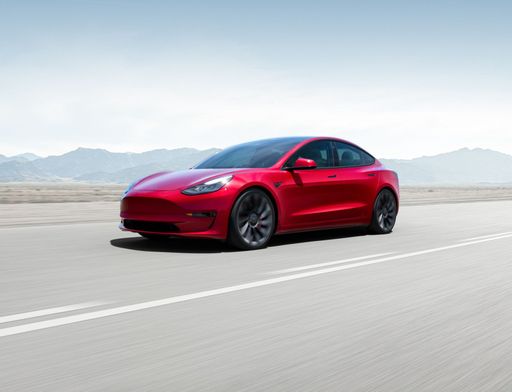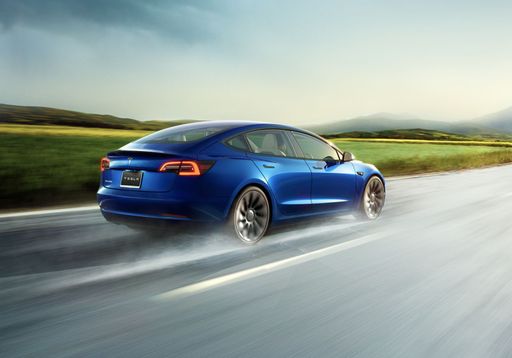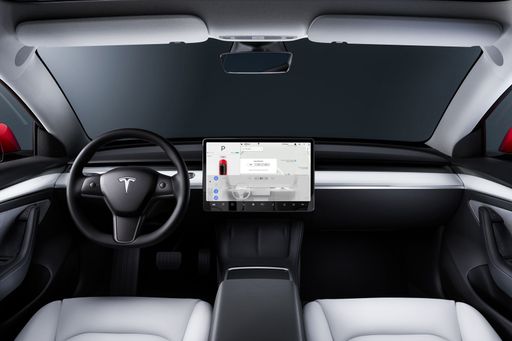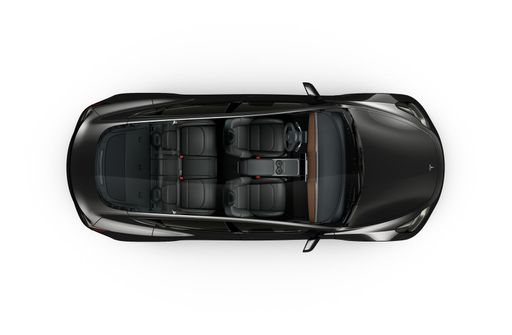Toyota Yaris Cross vs Tesla Model 3 – Which one offers the better deal?
Costs and Efficiency:
Price and efficiency are key factors when choosing a car – and this is often where the real differences emerge.
Toyota Yaris Cross has a decisively advantage in terms of price – it starts at 23700 £, while the Tesla Model 3 costs 34300 £. That’s a price difference of around 10586 £.
Engine and Performance:
Power, torque and acceleration are the classic benchmarks for car enthusiasts – and here, some clear differences start to show.
When it comes to engine power, the Tesla Model 3 has a convincingly edge – offering 460 HP compared to 130 HP. That’s roughly 330 HP more horsepower.
In acceleration from 0 to 100 km/h, the Tesla Model 3 is decisively quicker – completing the sprint in 3.10 s, while the Toyota Yaris Cross takes 10.70 s. That’s about 7.60 s faster.
In terms of top speed, the Tesla Model 3 performs evident better – reaching 262 km/h, while the Toyota Yaris Cross tops out at 170 km/h. The difference is around 92 km/h.
Space and Everyday Use:
Cabin size, boot volume and payload all play a role in everyday practicality. Here, comfort and flexibility make the difference.
Both vehicles offer seating for 5 people.
In curb weight, Toyota Yaris Cross is significantly lighter – 1180 kg compared to 1822 kg. The difference is around 642 kg.
In terms of boot space, the Tesla Model 3 offers distinct more room – 594 L compared to 397 L. That’s a difference of about 197 L.
When it comes to payload, Toyota Yaris Cross distinct takes the win – 510 kg compared to 333 kg. That’s a difference of about 177 kg.
Who wins the race?
The Tesla Model 3 proves to be is largely superior and therefore becomes our DriveDuel Champion!
Tesla Model 3 is the better all-rounder in this comparison.
Costs and Consumption
View detailed analysis
Engine and Performance
View detailed analysis
Dimensions and Body
View detailed analysis
 @ Tesla, Inc.
@ Tesla, Inc.
Tesla Model 3
Toyota Yaris Cross
The Toyota Yaris Cross takes the jaunty personality of the Yaris and gives it a taller stance and a bit more practicality, so you get city-friendly agility with added SUV presence. It’s easy to live with, economical on the daily grind, and smartly packaged — a sensible pick for buyers who want fuss-free transport with a touch of character.
details @ Toyota Motor Corporation
@ Toyota Motor Corporation
 @ Toyota Motor Corporation
@ Toyota Motor Corporation
 @ Toyota Motor Corporation
@ Toyota Motor Corporation
 @ Toyota Motor Corporation
@ Toyota Motor Corporation
 @ Toyota Motor Corporation
@ Toyota Motor Corporation
 @ Toyota Motor Corporation
@ Toyota Motor Corporation
 @ Toyota Motor Corporation
@ Toyota Motor Corporation
Tesla Model 3
The Tesla Model 3 slices through daily commuting with a silent, confident shove that makes petrolheads reassess their life choices, while its minimalist cabin feels more like a slick gadget gallery than a traditional car interior. For buyers after a fuss-free, tech-forward electric with plenty of grin factor and low running drama, it’s hard to beat—just don't be surprised when the car updates itself overnight.
details @ Tesla, Inc.
@ Tesla, Inc.
 @ Tesla, Inc.
@ Tesla, Inc.
 @ Tesla, Inc.
@ Tesla, Inc.
 @ Tesla, Inc.
@ Tesla, Inc.
 @ Toyota Motor Corporation
@ Toyota Motor Corporation
|
 @ Tesla, Inc.
@ Tesla, Inc.
|
|
|
|
Costs and Consumption |
|
|---|---|
|
Price
23700 - 34300 £
|
Price
34300 - 50100 £
|
|
Consumption L/100km
4.5 - 4.8 L
|
Consumption L/100km
-
|
|
Consumption kWh/100km
-
|
Consumption kWh/100km
13.2 - 16.7 kWh
|
|
Electric Range
-
|
Electric Range
550 - 750 km
|
|
Battery Capacity
-
|
Battery Capacity
64.5 - 83 kWh
|
|
co2
101 - 108 g/km
|
co2
0 g/km
|
|
Fuel tank capacity
36 L
|
Fuel tank capacity
-
|
Dimensions and Body |
|
|---|---|
|
Body Type
SUV
|
Body Type
Sedan
|
|
Seats
5
|
Seats
5
|
|
Doors
5
|
Doors
4
|
|
Curb weight
1180 - 1290 kg
|
Curb weight
1822 - 1929 kg
|
|
Trunk capacity
320 - 397 L
|
Trunk capacity
594 L
|
|
Length
4180 mm
|
Length
4720 - 4724 mm
|
|
Width
1765 mm
|
Width
1850 mm
|
|
Height
1595 mm
|
Height
1431 - 1440 mm
|
|
Max trunk capacity
1097 L
|
Max trunk capacity
-
|
|
Payload
485 - 510 kg
|
Payload
303 - 333 kg
|
Engine and Performance |
|
|---|---|
|
Engine Type
Full Hybrid
|
Engine Type
Electric
|
|
Transmission
Automatic
|
Transmission
Automatic
|
|
Transmission Detail
CVT
|
Transmission Detail
Reduction Gearbox
|
|
Drive Type
Front-Wheel Drive, All-Wheel Drive
|
Drive Type
Rear-Wheel Drive, All-Wheel Drive
|
|
Power HP
116 - 130 HP
|
Power HP
283 - 460 HP
|
|
Acceleration 0-100km/h
10.7 - 11.3 s
|
Acceleration 0-100km/h
3.1 - 6.1 s
|
|
Max Speed
170 km/h
|
Max Speed
201 - 262 km/h
|
|
Torque
-
|
Torque
420 - 660 Nm
|
|
Number of Cylinders
3
|
Number of Cylinders
-
|
|
Power kW
85 - 96 kW
|
Power kW
208 - 338 kW
|
|
Engine capacity
1490 cm3
|
Engine capacity
-
|
General |
|
|---|---|
|
Model Year
2024 - 2025
|
Model Year
2025
|
|
CO2 Efficiency Class
C
|
CO2 Efficiency Class
A
|
|
Brand
Toyota
|
Brand
Tesla
|
Is the Toyota Yaris Cross offered with different drivetrains?
Available configurations include Front-Wheel Drive or All-Wheel Drive.
The prices and data displayed are estimates based on German list prices and may vary by country. This information is not legally binding.
